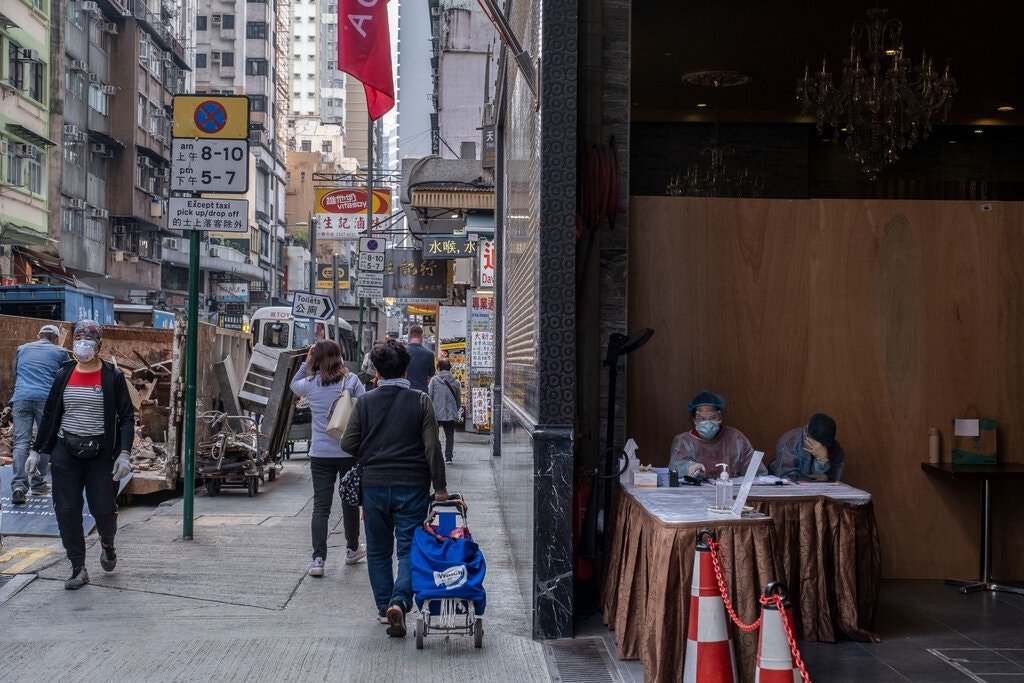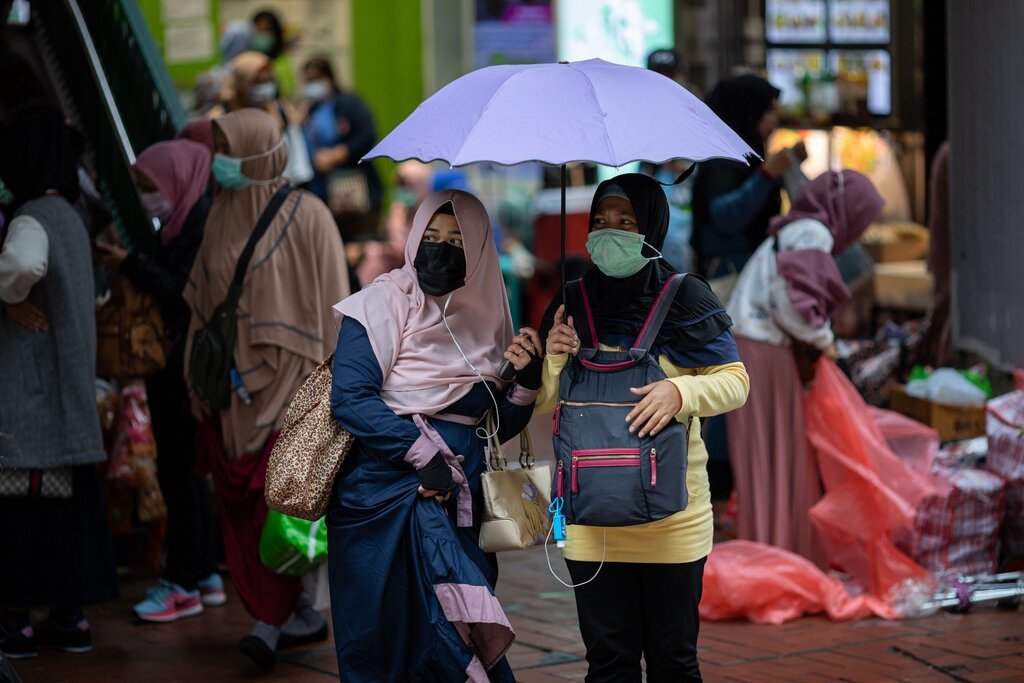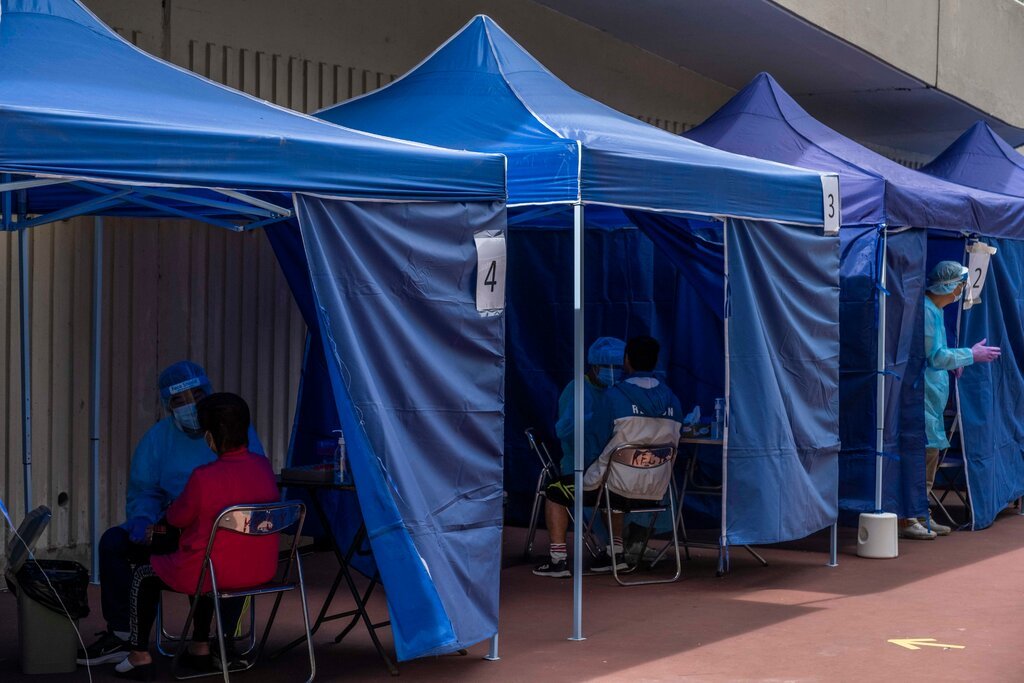
A Quarantine Nightmare: Three Weeks in a Hotel, if You Can Find One
Before boarding her flight to Hong Kong for a new job last month, Tanja Cunz made sure she had met all of the government’s stringent entry requirements. Ms. Cunz, a 34-year-old museum curator from Switzerland, took a coronavirus test, paid for two weeks of quarantine at a government-designated hotel and steeled herself for half a month without fresh air.
But as her plane touched down in Hong Kong on Christmas morning, an announcement came over the loudspeaker: The government overnight had extended the quarantine period from two weeks to three, effective immediately. The passengers would have to secure a third week at their hotel before they could leave the airport.
Ms. Cunz was stunned. Not only would she have to pay for an extra week of quarantine, but she would also have to postpone her start date at work by one week, meaning a loss of salary too.
“All your plans, they just fall apart,” Ms. Cunz said in a phone call from her hotel room, from which she can see her future office across Victoria Harbor.
Travelers rich and poor, hotels and airlines alike have scrambled to adjust since Hong Kong abruptly introduced its three-week quarantine policy. At a time when global travel has been disrupted in myriad ways, Hong Kong’s policy stands out for its length and the confusion it has unleashed.
Some travelers who had already booked two-week hotel slots said they had tried to secure an extension, only to have the entire reservation canceled. Others have tried to scrap their trips, then discovered that their hotel reservations could not be refunded.
Some domestic workers, the largely low-income women from the Philippines and Indonesia who make up about 5 percent of Hong Kong’s population, may be out of work indefinitely because their employers do not want to pay for a 21-night stay.

Global travelers these days face a patchwork of rules wherever they go — a patchwork that has been scrambled further by governments’ race to try to keep out the new variant. Mainland China requires two weeks of quarantine at a government-designated facility and then a variable number of days of home confinement afterward. The United States and some European countries, on the other hand, recently reduced the recommended quarantine time from 14 days to 10.
Some scientists have questioned the Hong Kong extension because the virus is widely considered to have a 14-day incubation period. Studies have estimated that between 1 and 10 percent of coronavirus patients may have incubation periods longer than that. The Hong Kong government acknowledged that such cases were “very exceptional” but said the precautions were necessary.
Hannah Clapham, a public health professor at the National University of Singapore, said that while a three-week quarantine would “perhaps slightly reduce the number of infectious individuals entering a population,” the government should weigh that small potential gain against the policy’s steep price.
The 21-day rule was “just to play it safe,” said Jin Dongyan, a molecular virologist at the University of Hong Kong. Still, he added, “I think they’re doing too much.”
While Ms. Cunz was caught unprepared, those with more time to reconsider their plans have found problems of their own.
Peter Lam, a logistics industry employee in Ireland, decided to cancel his return to Hong Kong to visit family. He could not afford an extra week. He also worried that the government would suddenly require a full month, the entirety of his planned trip.

But when he contacted his hotel, it told him the reservation was nonrefundable. Mr. Lam, 33, filed a complaint with Hong Kong’s Consumer Council, the Hong Kong Tourism Board and his credit card company. After three days, the hotel said it would do Mr. Lam a special favor and give him a refund, he said.
Others have had the opposite problem. Edwin Edwin, a consultant who was returning to Hong Kong after visiting family in the Netherlands, asked his quarantine hotel if he could reserve seven more days. A few hours later, he received an email: The hotel was full for that third week, so his entire reservation had been canceled.
He spent half a day desperately contacting other hotels. The only one he could find was twice the price.
In the end, Mr. Edwin traveled to Taiwan, where he is also a resident, and is quarantining there for two weeks as required. He will eventually return to Hong Kong from there. Arrivals from Taiwan are allowed to quarantine at home.
“The total trip was supposed to be a month, including quarantine,” he said. “Adding this all up, of course, it’s going to be a lot longer.”
Others have no choice. The policy has taken a toll on foreign domestic workers, who live and work in their employers’ homes, performing tasks such as cleaning and child care.

Such workers already endure low wages and discrimination, but the quarantine rules have exacerbated some of those issues, according to Jec Sernande, the secretary of the Hong Kong Federation of Asian Domestic Workers Unions.
One worker was asked by her employer not to return to the Philippines this year, Ms. Sernande said, to avoid paying for her quarantine after she returned. (The government began requiring employers to pay for quarantine for domestic workers last month.) Others are stuck in the Philippines without pay because their employers have postponed their contract start dates until the quarantine requirements in Hong Kong ease.
“She doesn’t have any work in the Philippines,” Ms. Sernande said of one of those workers. “She’s just waiting.”
Even for the hotel industry, the policy has brought headaches. Arrivals at Hong Kong’s airport have plummeted from an average of 1,300 each day in November to a few hundred most days since Christmas. Occupancy rates for many hotels hover around 30 to 40 percent, according to Yiu Si-Wing, a lawmaker who represents the tourism sector.
Some of the government’s 36 designated quarantine hotels have inquired about withdrawing from the program, Mr. Yiu said. Hotels that receive guests for quarantine cannot take other guests, such as long-term residents or Hong Kongers looking for a staycation.
Cheaper hotels have filled up quickly, but hotels that charge $65 or more a night have struggled, Mr. Yiu said. The government has promised to pay hotels a subsidy if they do not reach 50 percent occupancy. That will probably apply to a majority of hotels above that price threshold, Mr. Yiu said.

Still, despite their complaints, no hotels have actually moved to leave the program, Mr. Yiu said.
“From an income perspective, they can’t not do it,” he said.
The uniqueness of Hong Kong’s policy is clear to Louen Tang, a 38-year-old Hong Kong resident. Mr. Tang’s work in the logistics industry has required travel even during the pandemic. He has quarantined three times already.
Even so, he was unprepared to scramble for an extra week at an affordable hotel, as he had to after his return from London last month. But none of the hotels in his price range had availability. Desperate, Mr. Tang set hourly reminders to call a government hotline, until eventually an official told him he could finish his quarantine at a recreation facility near a country park that has been converted into a quarantine center.
“I travel a lot. I understand how different countries handle these regulations,” Mr. Tang said. “There’s nothing like Hong Kong.”











